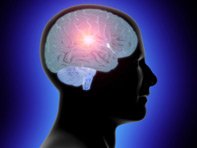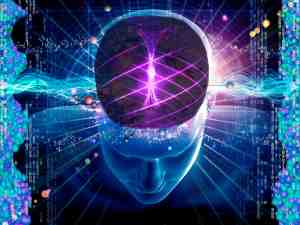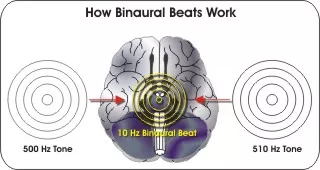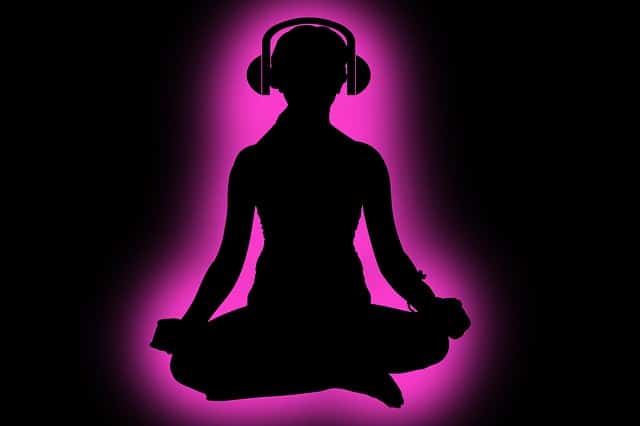The Balanced Brain
The Ultimate Route To Personal Transformation
How To Experience The Benefits Of A Balanced Brain

Introducing The Balanced Brain
Underpinning all of the belief systems and practices that offer routes to personal change, transformation and spiritual growth is the balanced brain.
These beliefs systems - and I am thinking of Christianity and Buddhism with which I am most familiar - are full of theologies, beliefs, concepts and practices that are intended to lead to the desired changes in behaviour and states of consciousness.
But, out of sight and unknown, there is a very fundamental physiological change that has to take place for these things to happen, and it involves a rewiring of the hardware in our skulls.
Developments over the past 50 years in neurology and evolutionary psychology have led to a far deeper understanding of how the human brain is not just one brain but a composite of several brains that have evolved over hundreds of thousands of years.
Professor William Irvine - Evolutionary Psychology - extract from Stoicism & Framing
At the current stage of evolution of the average normal human brain, the left brain and the right brain do not communicate easily or much at all.
The balanced brain does not occur naturally which means that our brains are unbalanced, i.e. the different centres of the brain literally do not - frequently cannot - communicate.
The same is also true for the Amygdala [the emotional centre] and Basal Ganglia [the survival instinct aka the reptile brain].
So, it follows that improved and more frequent and conscious communication between these
different brain centres [the balanced brain] is the route to peace, insight and all the
benefits attributed to meditation and other spiritual practices.
This may sound very reductionist, but it is the neurophysioloical change that we have to work on.
Of course the ethical teachings in these belief systems are important, and of course any cognitive steps we can take to that will assist our practice are also important. But...
Most readers will be familiar with meditation practices and especially mindfulness related practices which are covered thoroughly on this site.
But many will be less familiar with the use of brainwave entrainment technology to achieve the balanced brain.
The consistent use of brainwave entrainment tools can significantly assist our mindfulness practice and accelerate the rewiring process.
The Hardware Components That Determine How We Think

I want to briefly introduce you to to the work of Dr. Jill Bolte Taylor, a Harvard-trained and published neuroanatomist who in 1996 experienced a severe haemorrhage in the left hemisphere of her brain.
Dr Taylor got a research opportunity few brain scientists would wish for: She had a massive stroke, and watched as her brain functions - motion, speech, self-awareness all shut down one by one.
As well as gaining a first-hand insight into brain recovery for stroke victims - and for which she has become a powerful voice - her experience provides a fascinating and direct insight into the roles and functions of the left brain and right brain and the experience of
the balanced brain.
How We Think With Our Right Brain
According to Jill Nolte:
- Our right hemisphere is all about this present moment. It's all about right here right now.
- Our right hemisphere, it thinks in pictures and it learns kinaesthetically through the movement of our bodies.
- Information in the form of energy streams in simultaneously through all of our sensory systems. And then it explodes into this enormous collage of what this present moment looks like. What this present moment smells like and tastes like, what it feels like and what it sounds like.
- I am an energy being connected to the energy all around me through the consciousness of my right hemisphere.
- And right here, right now, all we are brothers and sisters on this planet, here to make the world a better place.
- And in this moment we are perfect. We are whole. And we are beautiful.
How We Think With Our Left Brain
Jill Bolte continues:
- My left hemisphere is a very different place.
- Our left hemisphere thinks linearly and methodically.
- Our left hemisphere is all about the past, and it's all about the future.
- Our left hemisphere is designed to take that enormous collage of the present moment. And start picking details and more details and more details about those details.
- It then categorizes and organizes all that information. Associates it with everything in the past we've ever learned and projects into the future all of our possibilities.
- And our left hemisphere thinks in language.
- It's that ongoing brain chatter that connects me and my internal world to my external world. It's that little voice that says to me, "Hey, you gotta remember to pick up bananas on your way home, and eat 'em in the morning."
- It's that calculating intelligence that reminds me when I have to do my laundry.
- But perhaps most important, it's that little voice that says to me, "I am. I am."
Here is a film clip of Jill Bolte speaking of her experiences. [This clip is about 20 mins long.]
Why The Practice Of Meditation Helps Achieve The Balanced Brain

At a reductionist level - this is the whole point of meditation and many other spiritual and personal development practises.
The reason why meditation can take so long to deliver significant and lasting personal change is because the meditator is, (quite literally) at the physiological level, re-wiring or re-routing the neurological pathways in their own brain and strengthening the left-brain/right-brain connection.
Initially this is primarily between left and right brain, and then from the balance achieved there, between all 4 major brain centres. So meditation is fundamentally a re-programming of the brain.
Brainwave Entrainment
The Technology Of Binaural Beat Meditation

In layman's terms, brainwave entrainment is the use of a binaural soundtrack to automatically induce deep meditative states and ulitmately the balanced brain .
This is very good news because it takes all the effort out of meditation as there is no need to focus your mind as the sound technology does it for you!
Also, the evidence suggests that the effects of regular daily use of this technology are long term.
The slightly more technical description of brainwave entrainment or "brainwave synchronization," is that it is any practice that aims to cause brainwave frequency to fall into step with a periodic stimulus having a frequency corresponding to the intended brain-state - for example, to induce sleep, creativity, meditative states etc.
A brief overview of the science behind brainwave entrainment
In October 1973 a breakthrough report "Auditory Beats in the Brain" by Dr. Gerald Oster of the Mt. Sinai Medical Center was published in the Scientific American.

It explained, that when tones of different frequencies were presented separately to each ear, pulsation's called binaural beats occurred in the brain.
This resulted in the whole brain becoming "entrained" to the internal beat and resonating to that frequency.
So in essence what this discovery revealed is that when our brainwave patterns are subject to binaural beats the brain can be entrained in a variety of ways that can positively affect moods, creativity, memory capacity, "brain balancing" and other benefits.
Around the same time Robert Monroe of the Monroe Institute of Applied Sciences was also studying binaural beats.
In countless experiments, using an EEG machine to observe the subject's electrical brain wave patterns, Robert Monroe confirmed that he could without a doubt entrain brain wave patterns using binaural beats.
He also noted that the response did not only occur in the area of the brain accountable for hearing, or only in one or the other of the hemispheres, but rather the whole brain resonated, the wave forms of both hemispheres becoming identical in frequency, amplitude, phase, and coherence.
Many other researchers have also verified this phenomenon, for example Dr. Charles Stroebel, Ph.D., M.D. Director of the Institute for Advanced studies in behavioural medicine, carried out a sequence of experiments on meditators in the 1970s.
He discovered that during stages of deep meditation the brain wave patterns of meditators altered and both hemispheres of the brain were working in harmony together.
When these same people were not meditating, one hemisphere was alternately dominant over the other and they were not working in harmony.
Further information
"A Revolution in Neuroscience: Tuning the Brain"
My Experience of Brainwave Entrainment

The main reason why meditation practice can take so long to deliver significant and lasting personal change is because the meditator is, (quite literally) at the physiological level, re-wiring or re-routing the neurological pathways in their own brain.
This may all sound very reductionist, un-glamorous and unspiritual, but at a physiological and neurological level when we meditate we are strengthening the corpus callosum to achieve the balanced brain.
A simplistic developmental analogy of all this is to compare or contrast the "average" or "normal" human brain with a baby, and then with the brain of a Zen master. The gap is wide and very visible on brain scans.
For further information on this please refer to the work of Dr Andrew Newberg who is regarded as one of leading pioneers in the field of neuroscientific
study of religious and spiritual experiences.
It was after I had been meditating for some years that I had my own "Grasshopper" moment (you do remember the 70's "Kung Fu" series starring the late David Carradine - don't you?), when I discovered that there is a brainwave entrainment technology based around binaural beats that can considerably speed up this whole reprogramming process.
Better still, the only effort required is physically putting on headphones and sitting in a chair for 30-60 minutes a day. For obvious reasons this had considerable appeal to me!
So having used a binaural beats based meditation programme for 8 years, am I any different now?
Having used a binaural beat meditation programme for over 8 years I can safely say that whilst in most respects I remain the same flawed human being I was before, at least I now know that I am!
I find that traditional meditation is now much easier to do than before, and more enjoyable - as are a range of other mindfulness practises.
I can largely stop thinking - well to be accurate about 80-90% of conscious thoughts stop when I want them to, and the rest is like a sort of "white noise" in the background.
I have developed the capacity to be able to witness (or mindfully watch) my thoughts and emotional states more or less automatically. I still get caught up in the them - but at least now I know when I do, and it isn't the 100% it used to be - more like 80% now, and I can "get out of" negative states much more easily and more quickly.
I can access right-brain states more or less at will and switch between a left or right brain state fairly easily.
This is a very subjective observation, but I feel that I have developed far more self-awareness to the extent that I now know or realise who I am - or more accurately who I am not.
For any Buddhists reading this, I feel a deeper insight into and direct experience of emptiness and the wider teachings on interdependent origination.
And what about the big "E"? Well I can say four simple things on that:
[1] That I do realise now what it isn't - namely it is not to be sought, worked towards or somewhere "out there".
[2] That we are all enlightened NOW - it is our true natural state, many of us have brief and transitory enlightenment experiences, but as it is not a part of our regular day-to-day experience we don't recognise or describe it as such.
[3] That it is a progressive awakening and comprises continuously deepening experiences that take place over many years - or at least it is for most of us - very few people have what is regarded as a "spontaneous awakening", and of those who do, not many successfully integrate the experience.
[4] That ultimately, enlightenment is just to BE - aware and fully present NOW - free of the mind...
Note:
There are a number of proprietary products on the market, and the one I used was Holosync which was developed and promoted by the late Bill Harris of Centerpointe Research Institute. The company is very commercial in its outlook and in my view it is expensive but in my experience over 8 years I found it to be very effective. [I have no affiliation with this company nor do I receive any commission or benefit for referring to this product.]
If you have serious interest in brainwave entrainment products I recommend you do your own research.
There are many sites offering reviews and many promoting their own products. You could start with: More Inner Peace. [I have no affiliation or commercial relationship with this site or the products featured.]
Further Reading:
For further reading and resources please see:
The Four Characters of Your Mind: “Whole Brain Living” by Jill Bolte Taylor (Book Summary)
“What makes this book so unique and exciting is that the psychology I present here is specifically correlated to the underlying brain anatomy and what we know about the function of those specific groups of cells.”
Dr Andrew Newberg is regarded as one of leading pioneers in the field of neuroscientific
study of religious and spiritual experiences, increasingly referred to
as – neurotheology.
His research work focuses on the nature of religious and spiritual practices and experiences and specifically how brain function is associated with various mental states, especially the relationship between brain function and mystical or religious experiences.
Next Article: Mindfulness is a spontaneous state
Return from: "The Balance Brain" to: How To Practise Mindfulness
LATEST ARTICLES
Does Prayer Work? The Psychology of Prayer, Meditation and Outcomes
 Reality Is A Complex System Of Countless Interactions - Including Yours. So does prayer work? The problem is that the question itself is usually framed in a way that guarantees confusion. We tend to a…
Reality Is A Complex System Of Countless Interactions - Including Yours. So does prayer work? The problem is that the question itself is usually framed in a way that guarantees confusion. We tend to a…Living in Survival Mode Without Surrendering Mental Authority
Living in Survival Mode Without Surrendering Mental Authority
 Clear Thinking When You’re Just Trying to Stay Afloat. Many people today are overwhelmed because they are living in survival mode - not temporarily, but as a persistent condition of life. For many, th…
Clear Thinking When You’re Just Trying to Stay Afloat. Many people today are overwhelmed because they are living in survival mode - not temporarily, but as a persistent condition of life. For many, th…Manifestation Without Magic: A Practical Model
 Manifestation without magic is not a softer or more intellectual version of popular manifestation culture. It is a different model altogether. Popular manifestation teachings tend to frame reality as…
Manifestation without magic is not a softer or more intellectual version of popular manifestation culture. It is a different model altogether. Popular manifestation teachings tend to frame reality as…Staying Committed When You Can't See Progress - The Psychology of Grit
 Uncertainty Is Not The Absence Of Progress, Only The Absence Of Reassurance. One of the most destabilising experiences in modern life is not failure, but uncertainty and staying committed when you can…
Uncertainty Is Not The Absence Of Progress, Only The Absence Of Reassurance. One of the most destabilising experiences in modern life is not failure, but uncertainty and staying committed when you can…The Battle For Your Mind - How To Win Inner Freedom In A Digital Age Of Distraction
 From External Events to Inner Events. We often think of “events” as things that happen out there: the traffic jam, the rude comment, the delayed email reply. But what truly shapes our experience is wh…
From External Events to Inner Events. We often think of “events” as things that happen out there: the traffic jam, the rude comment, the delayed email reply. But what truly shapes our experience is wh…How to See Your Thoughts Without Becoming the Story
 A Practical Guide to Thought-Awareness. You can spend your life inside the stories of your mind without ever learning how to see your thoughts clearly and objectively. Most of the stuff we tell oursel…
A Practical Guide to Thought-Awareness. You can spend your life inside the stories of your mind without ever learning how to see your thoughts clearly and objectively. Most of the stuff we tell oursel…The Collison Decision Matrix - A Simple Framework for Better Choices
 The Collison Decision Matrix Is A Practical Everyday Thinking Tool. Most of us spend a surprising amount of time worrying about decisions. From small ones such as what to wear, what to eat, what to te…
The Collison Decision Matrix Is A Practical Everyday Thinking Tool. Most of us spend a surprising amount of time worrying about decisions. From small ones such as what to wear, what to eat, what to te…The Power Of Asking The Right Question
 The Power Of Asking The Right Question Lies In The Quest For Insight. To experience the power of asking the right question you must develop the practice of asking questions. The best way to improve th…
The Power Of Asking The Right Question Lies In The Quest For Insight. To experience the power of asking the right question you must develop the practice of asking questions. The best way to improve th…Site Pathways
 Here is a site pathway to help new readers of Zen-Tools navigate the material on this site. Each pathway is based around one of the many key themes covered on this site and contain a 150 word introduc…
Here is a site pathway to help new readers of Zen-Tools navigate the material on this site. Each pathway is based around one of the many key themes covered on this site and contain a 150 word introduc…How To Live With Contradiction - Beyond Thought Let Stillness Speak
 A major impact on so many peoples' lives is the situational contradiction of unfilled realistic expectations. So where does all this leave us? Well here we are, with mental equipment that is more lim…
A major impact on so many peoples' lives is the situational contradiction of unfilled realistic expectations. So where does all this leave us? Well here we are, with mental equipment that is more lim…How To Trust The Process Of Mindfulness - Right Now
 In mindfulness, the process isn’t some distant goal — it's what is happening right now. When we talk about how to trust the process of mindfulness the credibility of the process is heavily dependent…
In mindfulness, the process isn’t some distant goal — it's what is happening right now. When we talk about how to trust the process of mindfulness the credibility of the process is heavily dependent…